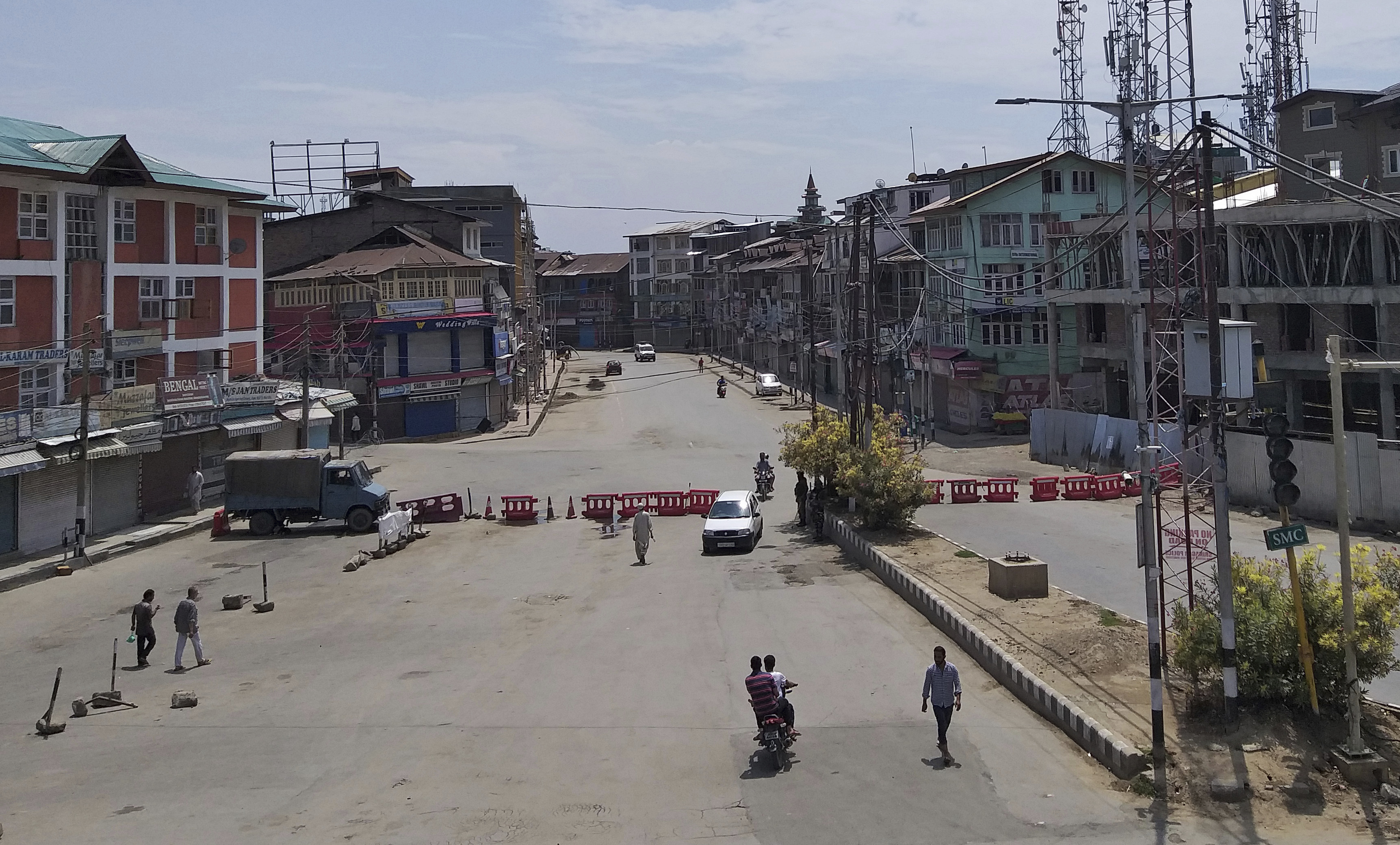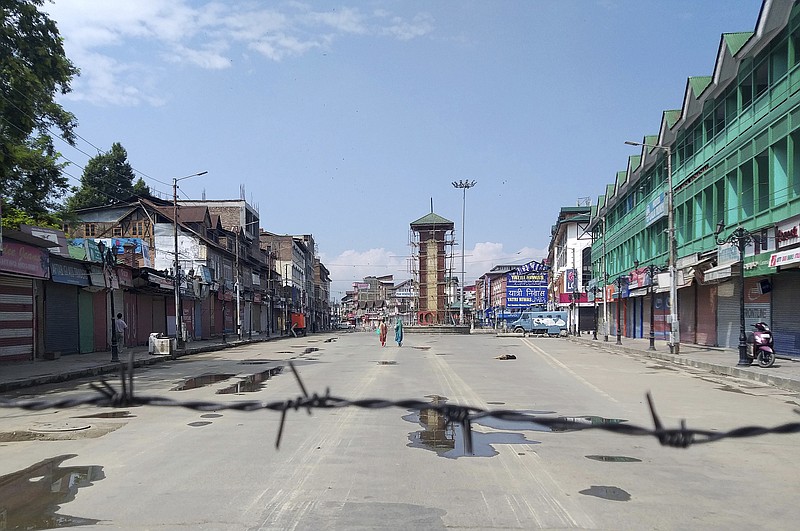BARAMULLA, India - My car moved within a column of Indian army vehicles and a cloud of dust. On a normal day, it would have been a smooth journey from the airport in Srinagar, the summer capital of Jammu and Kashmir state, to my family home in the northern town of Baramulla.
But life is very different in the Kashmir Valley these days. The part that India controls is now under an unprecedented security crackdown to prevent an uprising after the central government in New Delhi unexpectedly stripped the region's special constitutional status, the last vestige of real autonomy for the predominantly Muslim region that is claimed by both India and Pakistan.
Hundreds of Indian soldiers, armed with automatic rifles, patrol the Srinagar-Baramulla highway, a 35-mile-long road that connects the region's main city with its northern towns. Civilian traffic is sporadic. Shops are shuttered. Army trucks gather speed along the road. And spools of concertina wire block the streets that branch off the highway, forcing residents to remain indoors.
The Indian-controlled part of Kashmir is under lockdown.
 FILE- In this Thursday, Aug. 8, 2019 file photo, pedestrians move on a deserted street in Srinagar, Indian controlled Kashmir. Life is very different in the Kashmir Valley these days, under an unprecedented security crackdown to prevent an uprising after the central government unexpectedly stripped its special constitutional status, the last vestige of real autonomy for the predominantly Muslim region. (AP Photo/Sheikh Saaliq, File)
FILE- In this Thursday, Aug. 8, 2019 file photo, pedestrians move on a deserted street in Srinagar, Indian controlled Kashmir. Life is very different in the Kashmir Valley these days, under an unprecedented security crackdown to prevent an uprising after the central government unexpectedly stripped its special constitutional status, the last vestige of real autonomy for the predominantly Muslim region. (AP Photo/Sheikh Saaliq, File)I first returned to Kashmir last week on a reporting trip when Parliament revoked the region's special status. My second trip was more personal. I was going home to see my relatives on the Eid al-Adha holiday after not having talked to them for days amid a shutdown of phone and internet service.
The trip from Srinagar airport to Baramulla was filled with fear and a strange sense of homecoming. There was hardly any traffic on the highway. Every 10-15 minutes, Indian soldiers stopped vehicles and frisked travelers.
Most of the roads I crossed were strewn with debris - a sign of the population's anger. The streets were almost deserted and the mood among the people somber. Under the simmering crisis, ordinary Kashmiris were caught in tumult and waiting to see what happens.
"We will fight India," said Firdous Ahmad Naqash, 19, on a road that leads to Sopore, a northern town where anti-India feelings run deep.
Muzaffar Teli, a 56-year-old man sitting next to him, echoed his words.
"Him and me, we will together fight India now," he said.
Kashmiris fear the move to put their region under greater control from New Delhi will change its demographics and cultural identity. India said its decision would free the troubled region from separatism.
Rebels have been fighting Indian rule for decades. Some 70,000 people have died in clashes between militants and civilian protesters and Indian security forces since 1989. Most Kashmiris want either independence or a merger with Pakistan.
The nuclear-armed rivals have fought two wars over Kashmir. The first ended in 1948 with the region divided and a promise of a U.N.-sponsored referendum that was never held.
Conversations with residents, many of whom spoke anonymously for fear of being arrested by Indian authorities, often ended with a deep sigh or a burst of anger.
"It's all black and white now. It's them (India) versus us," said Masarat Jan, her daughter clinging to her tightly as they maneuvered around concertina wire.
"She is an asthma patient," Jan said, referring to her daughter. "How will we get her the medicine she needs if these restrictions continue?"
At home, things weren't good. My mother, who is diabetic, was running out of insulin and clinics were out of stock. A doctor promised that he will try to get some from Srinagar if he could get to the city.
My family told me an elderly neighbor had died, but he had been buried quickly and no mourners were allowed to attend his funeral.
They have stopped watching the news, what little there is. They said Indian news channels were pushing the central government's narrative by only showing images from places that were relatively calm.
I didn't want to watch the news either. As fear, anger and ambiguity about what's next dominate life in Kashmir, most people are anxious to get out of their homes and talk to their loved ones.
Security lockdowns and information blackouts are nothing new in Kashmir, where mass uprisings against Indian rule in 2008, 2010 and 2016 led to the deaths of more than 300 people in clashes. This month, however, marked the first time that landline phones were cut.
